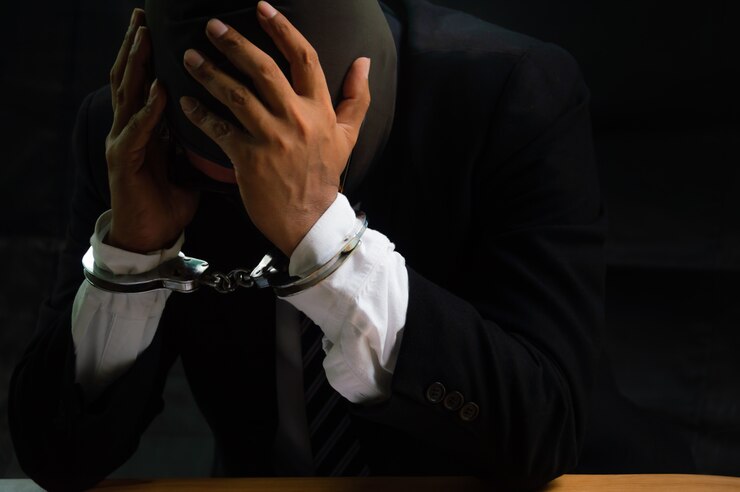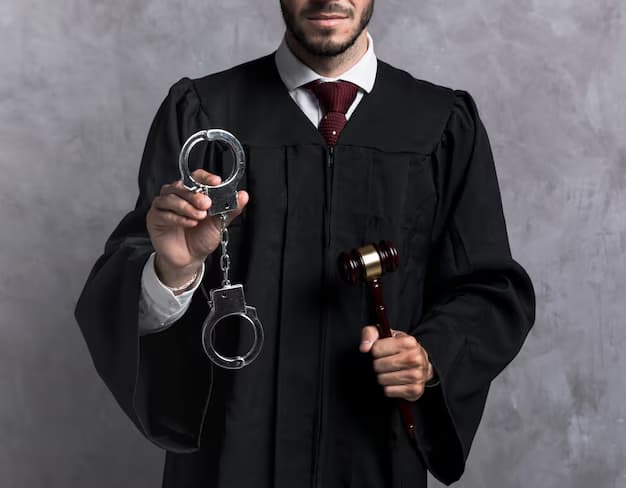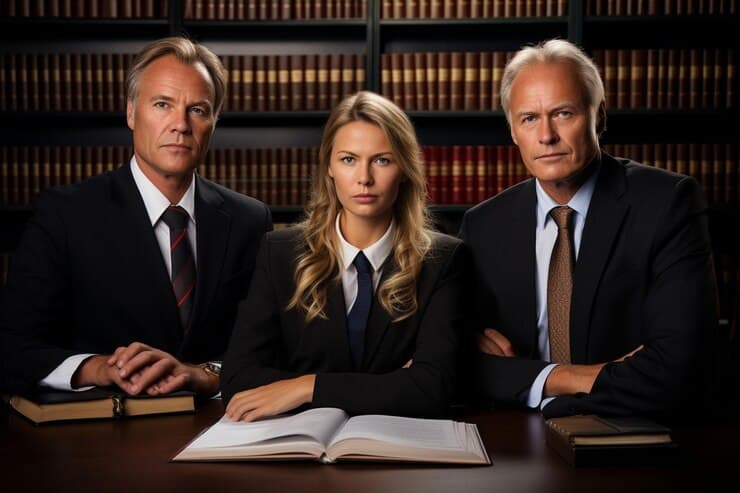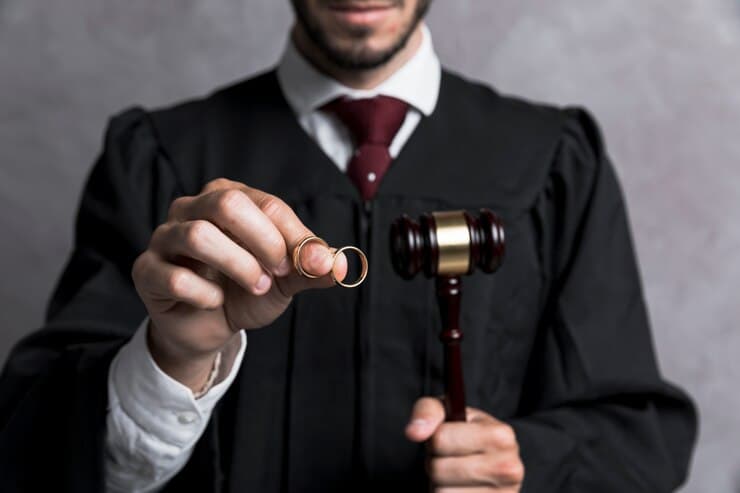How a Criminal Justice Lawyer Can Help You Navigate the Legal System

Introduction
Facing criminal charges can be one of the most stressful and overwhelming experiences in a person's life. The consequences of a criminal conviction can be life-changing, affecting your freedom, reputation, career, and future. Whether you're dealing with misdemeanor charges or more serious felony allegations, understanding the criminal justice process is essential. This is where a criminal justice lawyer comes into play. A criminal justice lawyer plays a crucial role in guiding you through the legal system, advocating on your behalf, and working to achieve the best possible outcome for your case.
What is a Criminal Justice Lawyer?
A criminal justice lawyer, also known as a criminal defense attorney, is a legal professional who specializes in defending individuals and entities charged with criminal offenses. Their role is to ensure that your constitutional rights are protected, to provide legal counsel, and to represent you during criminal proceedings. Criminal justice lawyers work in a variety of areas, including defending clients accused of theft, assault, drug-related crimes, homicide, white-collar crimes, and more. They use their knowledge of criminal law to develop defense strategies that can reduce or eliminate the charges against their clients.
The Criminal Justice Process: An Overview
Before diving into how a criminal justice lawyer can help, it’s important to understand the basic steps of the criminal justice process:
Arrest: If the police have probable cause to believe you committed a crime, you may be arrested and taken into custody.
Charging: After the arrest, the prosecution will review the evidence and decide whether to file formal charges.
Arraignment: The defendant is formally charged and enters a plea of guilty, not guilty, or no contest. Bail may be set at this stage.
Pre-Trial: Both the defense and the prosecution prepare for trial by gathering evidence, interviewing witnesses, and filing motions.
Trial: If the case is not resolved before trial, the case will go to court. The prosecution must prove the defendant's guilt beyond a reasonable doubt.
Sentencing: If the defendant is convicted, a sentencing hearing will determine the appropriate punishment.
Appeal: If a conviction occurs, the defendant may appeal the case to a higher court.
At every stage of this process, a criminal justice lawyer provides invaluable assistance. Below are the ways in which a criminal defense attorney helps navigate the legal system.
1. Protecting Your Constitutional Rights
One of the primary duties of a criminal justice lawyer is to ensure that your constitutional rights are upheld throughout the legal process. From the moment you are arrested, you have certain rights that must be respected. These include:
Right to remain silent: You have the right to avoid self-incrimination by not answering questions without a lawyer present.
Right to an attorney: If you're arrested or facing charges, you have the right to legal representation, even if you cannot afford one.
Right to a fair trial: You are entitled to a trial by an impartial jury, and the prosecution must prove your guilt beyond a reasonable doubt.
A skilled criminal justice lawyer will work tirelessly to ensure that law enforcement follows proper procedures during arrest and questioning, preventing violations of your rights. If your rights are violated at any stage, the lawyer can seek to have any improperly obtained evidence excluded from the case.
2. Evaluating the Strength of the Case Against You
Criminal justice lawyers are trained to assess the strength of the evidence against you. They will carefully examine the details of your case, review police reports, and scrutinize any physical evidence. If there are weaknesses or inconsistencies in the case, they will highlight them to strengthen your defense. Some of the factors they will look for include:
Unlawful search and seizure: If evidence was gathered without a warrant or probable cause, it may not be admissible in court.
Lack of physical evidence: The prosecution must provide solid evidence linking you to the crime. If they don't, the case against you weakens.
Inconsistent witness statements: If witnesses offer conflicting testimonies, this may cast doubt on the prosecution’s case.
Your lawyer will use this analysis to determine the most effective strategy to minimize charges, challenge the evidence, or seek a dismissal.
3. Developing a Strong Defense Strategy
Every criminal case is unique, and there is no one-size-fits-all defense. A criminal justice lawyer’s job is to develop a strategy that fits the specifics of your case. Some common defense strategies include:
Alibi defense: If you can prove you were somewhere else at the time the crime occurred, your lawyer may present an alibi.
Self-defense: If you were involved in an incident where you reasonably believed you were in danger, your lawyer may argue that your actions were necessary to protect yourself.
Insufficient evidence: If the prosecution cannot meet its burden of proof, your lawyer will argue that there is not enough evidence to convict you.
Mistaken identity: If you were wrongly accused, your lawyer may work to demonstrate that you were not the person who committed the crime.
Entrapment: If law enforcement induced you to commit a crime you wouldn't have otherwise committed, your lawyer may use the entrapment defense.
An experienced criminal justice lawyer will choose the defense strategy that best suits the facts of your case, increasing the likelihood of a favorable outcome.
4. Negotiating Plea Deals
Not all criminal cases go to trial. In many instances, criminal justice lawyers negotiate plea deals with the prosecution. A plea deal allows the defendant to plead guilty to a lesser charge or receive a reduced sentence in exchange for cooperation.
A lawyer will negotiate on your behalf, ensuring that any plea deal is fair and takes into account your interests. For example, if you’re facing a serious charge with overwhelming evidence, your lawyer may negotiate a plea deal to reduce the severity of the punishment. Plea deals are a common way to avoid lengthy trials, but it’s important to work with a lawyer who can advocate for the best possible terms.
5. Representing You in Court
If your case goes to trial, your criminal justice lawyer will represent you in court. This includes presenting your defense, cross-examining witnesses, and making legal arguments to the judge and jury. Your lawyer will use their knowledge of the law and courtroom procedures to ensure your case is presented in the best possible light.
The goal is to either secure an acquittal (not guilty verdict) or reduce the charges and penalties. Skilled lawyers know how to make persuasive arguments, present evidence effectively, and cast doubt on the prosecution's case.
6. Assisting with Sentencing and Appeals
If you are convicted, a criminal justice lawyer will assist in mitigating the consequences during the sentencing phase. They can advocate for lighter sentencing options, such as probation or community service, or argue for rehabilitation over incarceration.
If the conviction is deemed unjust, your attorney can file an appeal. An appeal is a legal process that challenges the trial court’s decision. This may involve arguing that the judge made an error in applying the law or that new evidence has come to light that could change the outcome of the case.
7. Providing Emotional Support and Guidance
Facing criminal charges is an emotionally draining experience. It can be difficult to navigate the anxiety, stress, and uncertainty of the situation. A criminal justice lawyer offers not only legal expertise but emotional support as well. They will guide you through every step of the process, explaining complex legal terms in layman's language and providing realistic expectations about potential outcomes.
Having a lawyer who understands the emotional and mental toll of facing criminal charges can provide peace of mind during a challenging time.
Note: IndiBlogHub features both user-submitted and editorial content. We do not verify third-party contributions. Read our Disclaimer and Privacy Policyfor details.






